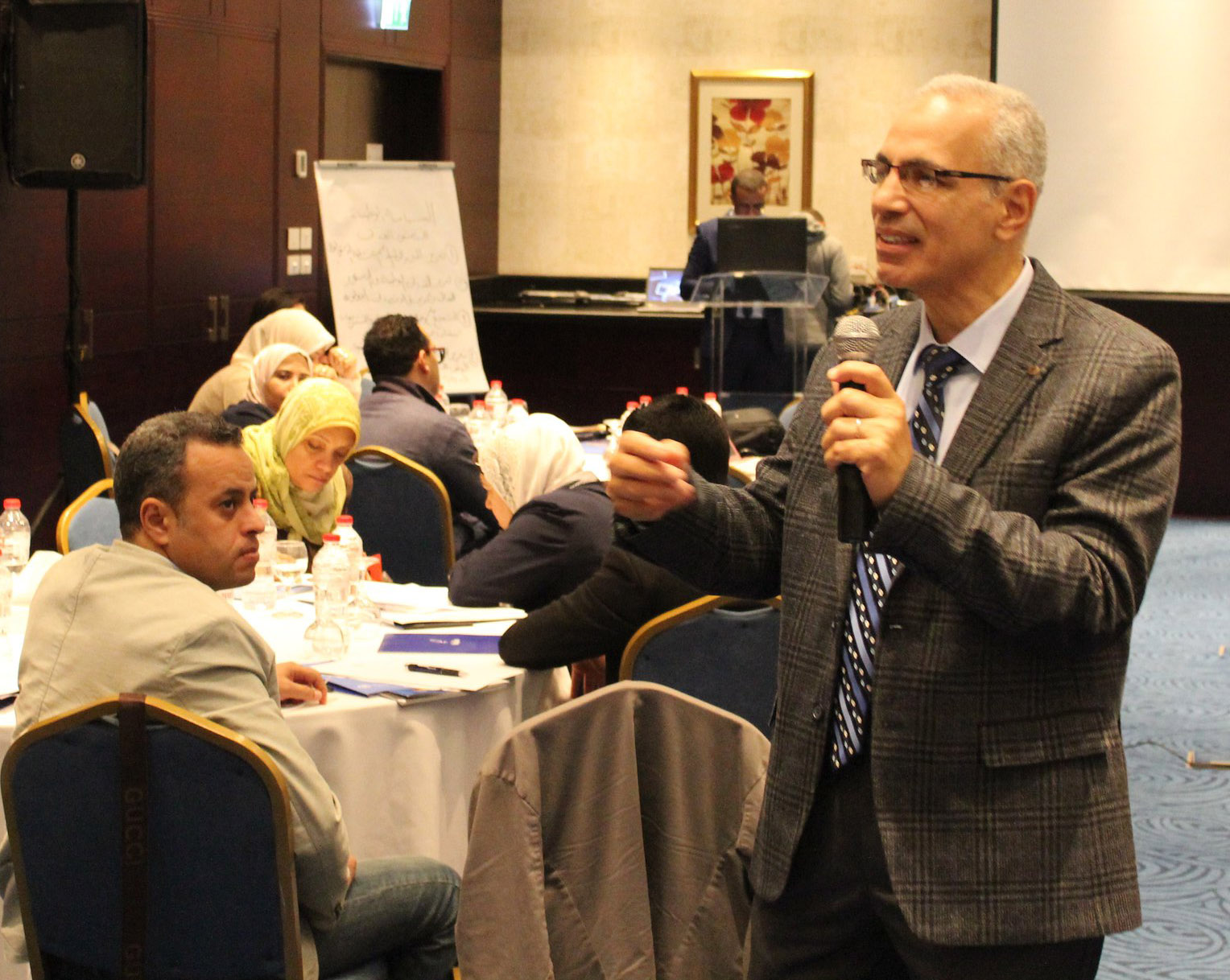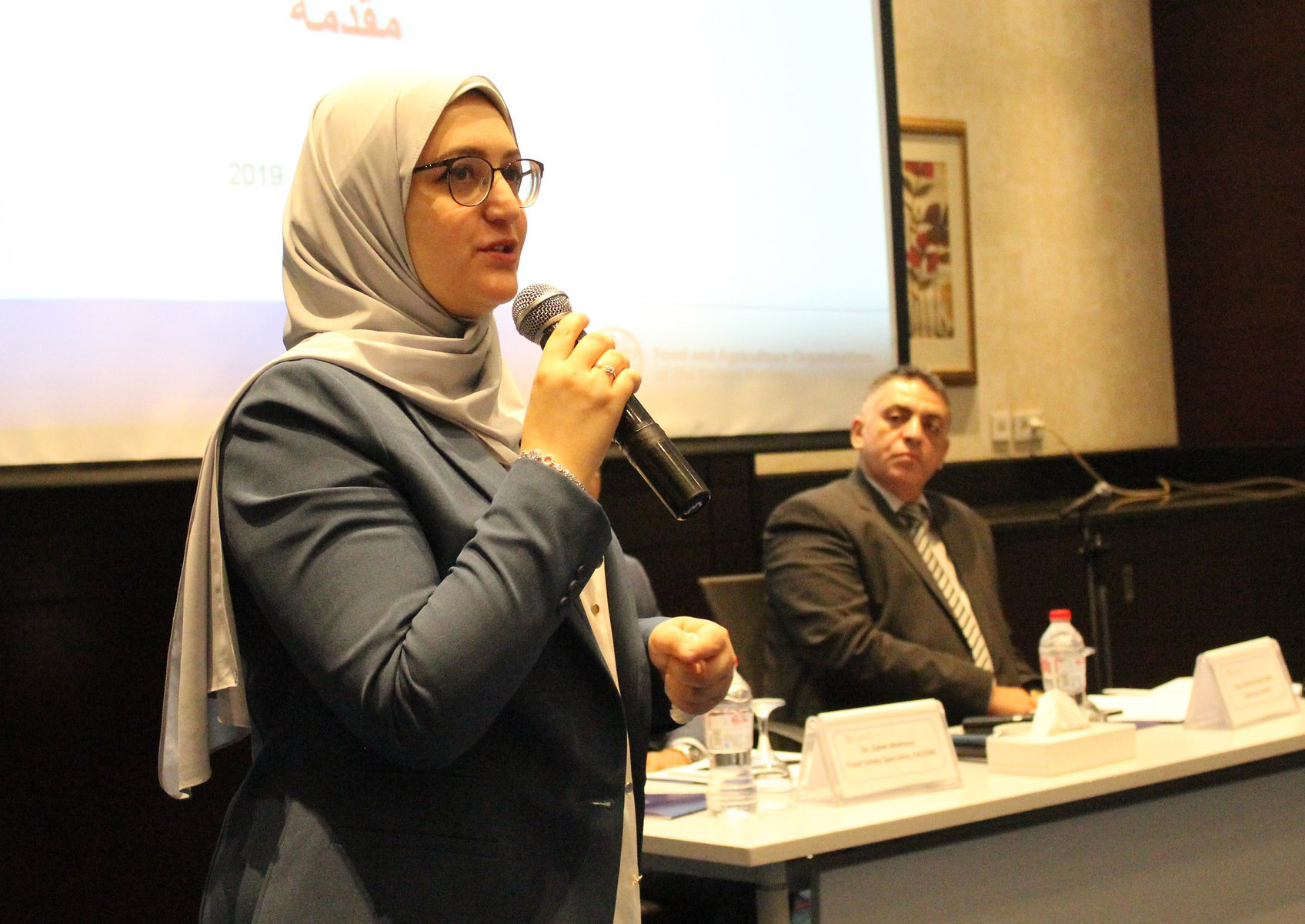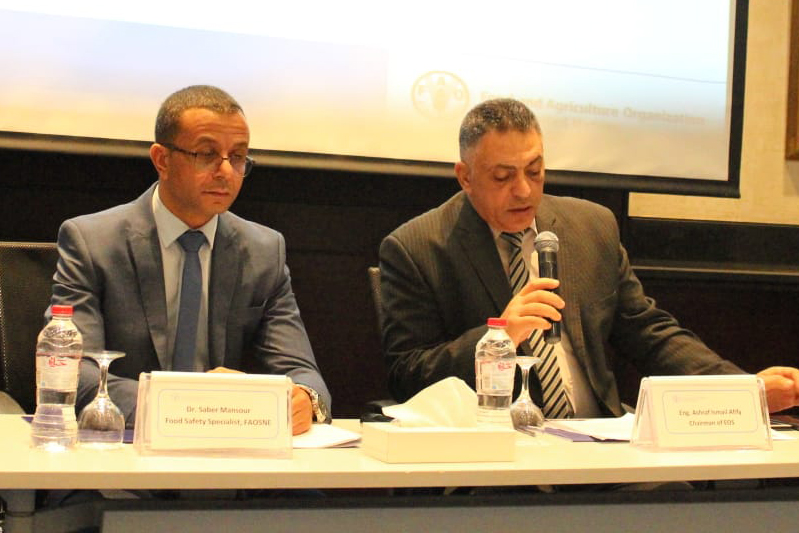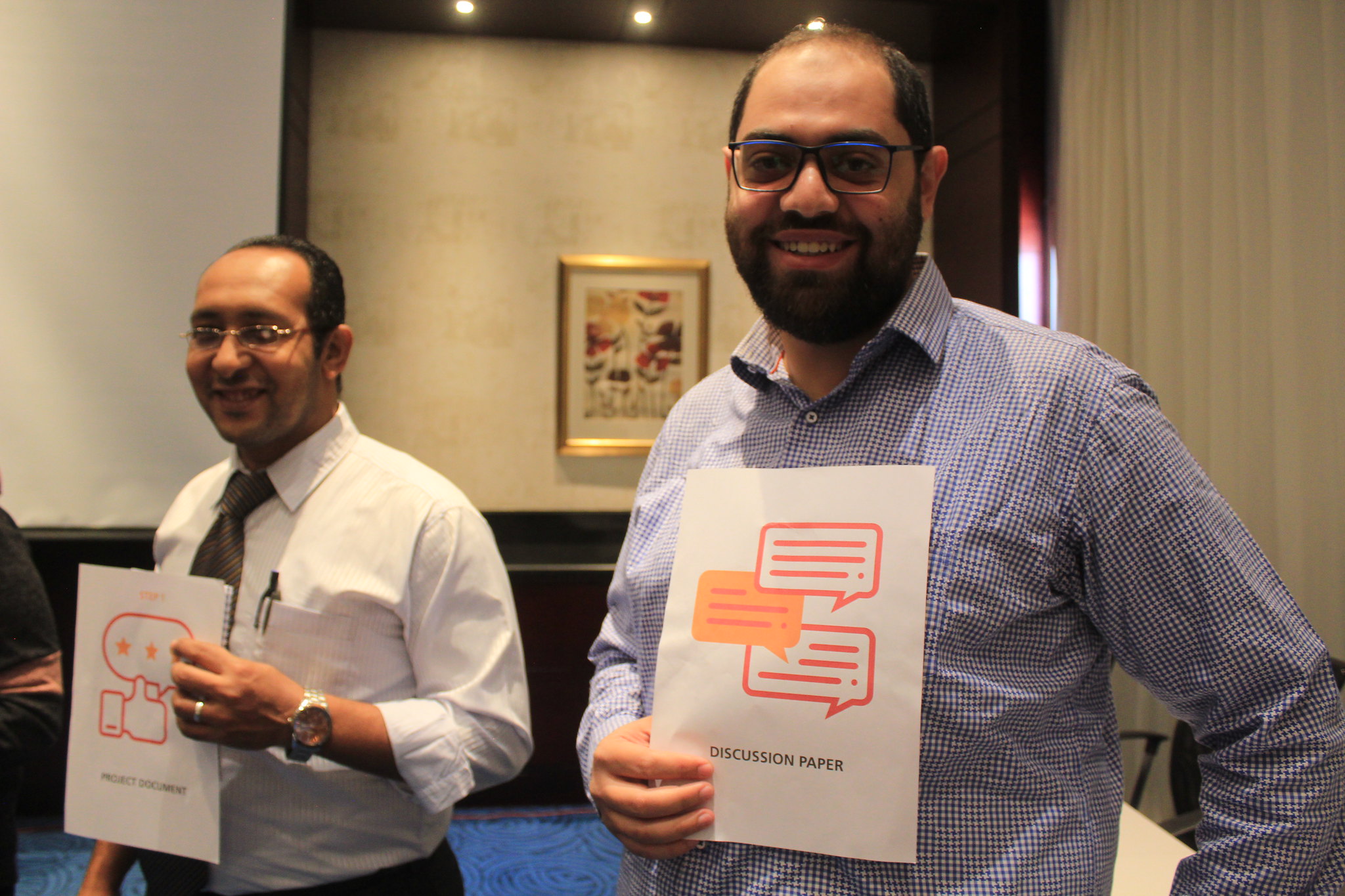Alexandria workshop maximises participation of all those involved in Codex in Egypt
FAO, in cooperation with the Egyptian Organization for Standardization and Quality (EOS), held a workshop in Alexandria from 25-27 November 2019 entitled "Supporting Codex Capacity in Egypt" to strengthen the structure and program of Codex in Egypt, to improve the food import control system in the country in order to facilitate trade and ensure food safety.

Workshop: "Supporting Codex Capacity in Egypt"
The three-day workshop took place in the context of the public/private partnership, under the supervision of the Egyptian Codex Contact Point, located in the Egyptian Organization for Standardization and Quality, in collaboration with food safety experts from FAO.
Participants included representatives from the Ministry of Agriculture and Land Reclamation, the Ministry of Supply and Internal Trade, the National Authority for Food Safety, the Veterinary Services Authority, the Faculty of Agriculture of Alexandria University, the Faculty of Veterinary Medicine of Alexandria University, the Faculty of Agriculture of Tanta University, and a representative of the Chamber of Food Industries and Companies, representatives of government agencies related to Codex work, as well as experts from FAO.

Haneen Rafik, Programme Assistant FAO - Egypt
Ashraf Afifi, Chairman of the EOS and the Egyptian Codex Committee, said: "This workshop is unique and builds on the success of the first workshop held in Cairo last October, which was followed by an assessment of all Codex activities in Egypt. In collaboration with FAO, this workshop in Alexandria – the second largest governorate in Egypt - was organized to maximize the participation of all national entities in Codex activities”.

Ashraf Afify (right) and Saber Mansour
Food safety in Egypt depends on public/private integration.
Saber Mansour, FAO food safety expert, said: “Food safety and fair practices in food trade are the two pillars on which Codex texts are built. Food safety in Egypt will only be achieved through integration between the public and private sector”. Participants benefited from the available scientific and practical academic expertise represented in universities, research centres and others along with the industrial and productive sectors and the workshop was an opportunity to join efforts to support decision makers to incorporate Codex in national food safety policies in Egypt, “which will ultimately affect the health and safety of consumers, and facilitate trade between Egypt and the world’” said Mansour.

Workshop participants discuss the Codex step process for standard development
Hanan Fouad, Director of the Food Standards Department and Rapporteur of the Egyptian Codex Committee, said: “The workshop aims at strengthening the capacity of Codex in Egypt and raising awareness of Codex-related stakeholders on the Codex system in relation to Codex at the regional and international levels, in addition to identifying strengths and weaknesses and working to improve the weaknesses of the Egyptian Codex system".
Did you know
Egypt was one of the first Arab countries to join the Codex Committee since its inception, and the Egyptian Committee for Codex was established in 1973. The International Codex Committee, which is under the Food Standards Department of the Egyptian Organization for Standardization and Quality comprises all relevant governmental, academic and research authorities, representatives of the private and public sector and consumer protection associations.
Photo Credit
Ahmed Elhelw
At the heart of the Codex mandate are the core values of collaboration, inclusiveness, consensus building and transparency. Governmental and non-governmental, public and private organizations alike play a vital role in ensuring Codex texts are of the highest quality and based on sound science.
Codex would have little authority in the field of international standard setting if it did not welcome and acknowledge the valuable contributions made by observers. Expert technical bodies, industry and consumer associations
contribute to the standard-setting process in a spirit of openness, collaboration and transparency.
Intergovernmental organizations (IGOs) and international non-governmental organizations (NGOs) can apply for observer status in Codex in order to attend and put forward their views at every stage of the standard-setting process.
 Current Codex Alimentarius Commission
Current Codex Alimentarius Commission
Alexandria workshop maximises participation of all those involved in Codex in Egypt
FAO, in cooperation with the Egyptian Organization for Standardization and Quality (EOS), held a workshop in Alexandria from 25-27 November 2019 entitled "Supporting Codex Capacity in Egypt" to strengthen the structure and program of Codex in Egypt, to improve the food import control system in the country in order to facilitate trade and ensure food safety.

Workshop: "Supporting Codex Capacity in Egypt"
The three-day workshop took place in the context of the public/private partnership, under the supervision of the Egyptian Codex Contact Point, located in the Egyptian Organization for Standardization and Quality, in collaboration with food safety experts from FAO.
Participants included representatives from the Ministry of Agriculture and Land Reclamation, the Ministry of Supply and Internal Trade, the National Authority for Food Safety, the Veterinary Services Authority, the Faculty of Agriculture of Alexandria University, the Faculty of Veterinary Medicine of Alexandria University, the Faculty of Agriculture of Tanta University, and a representative of the Chamber of Food Industries and Companies, representatives of government agencies related to Codex work, as well as experts from FAO.

Haneen Rafik, Programme Assistant FAO - Egypt
Ashraf Afifi, Chairman of the EOS and the Egyptian Codex Committee, said: "This workshop is unique and builds on the success of the first workshop held in Cairo last October, which was followed by an assessment of all Codex activities in Egypt. In collaboration with FAO, this workshop in Alexandria – the second largest governorate in Egypt - was organized to maximize the participation of all national entities in Codex activities”.

Ashraf Afify (right) and Saber Mansour
Food safety in Egypt depends on public/private integration.
Saber Mansour, FAO food safety expert, said: “Food safety and fair practices in food trade are the two pillars on which Codex texts are built. Food safety in Egypt will only be achieved through integration between the public and private sector”. Participants benefited from the available scientific and practical academic expertise represented in universities, research centres and others along with the industrial and productive sectors and the workshop was an opportunity to join efforts to support decision makers to incorporate Codex in national food safety policies in Egypt, “which will ultimately affect the health and safety of consumers, and facilitate trade between Egypt and the world’” said Mansour.

Workshop participants discuss the Codex step process for standard development
Hanan Fouad, Director of the Food Standards Department and Rapporteur of the Egyptian Codex Committee, said: “The workshop aims at strengthening the capacity of Codex in Egypt and raising awareness of Codex-related stakeholders on the Codex system in relation to Codex at the regional and international levels, in addition to identifying strengths and weaknesses and working to improve the weaknesses of the Egyptian Codex system".
Did you know
Egypt was one of the first Arab countries to join the Codex Committee since its inception, and the Egyptian Committee for Codex was established in 1973. The International Codex Committee, which is under the Food Standards Department of the Egyptian Organization for Standardization and Quality comprises all relevant governmental, academic and research authorities, representatives of the private and public sector and consumer protection associations.
Photo Credit
Ahmed Elhelw
 Codex and Observer
Codex and Observer
around the world since ancient times.
We might not always know where it comes from,
but we expect it to be available, safe and of good quality.










Leave a comment